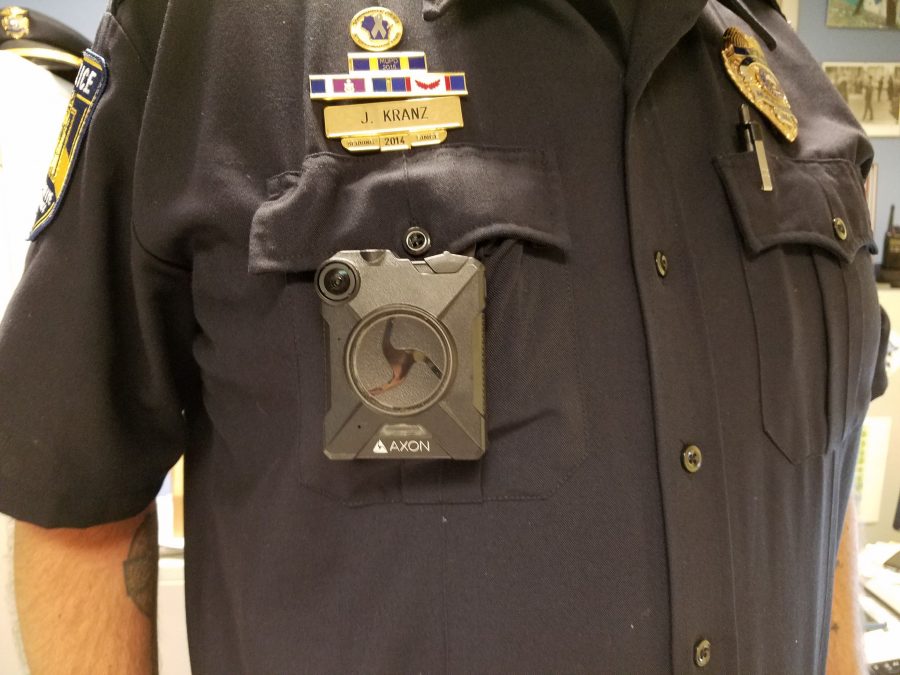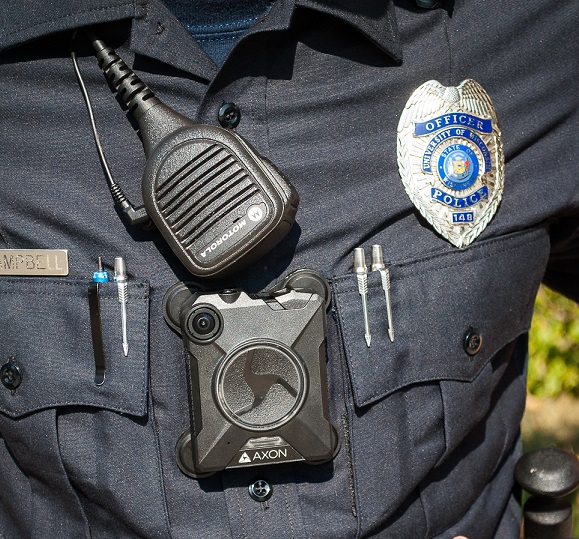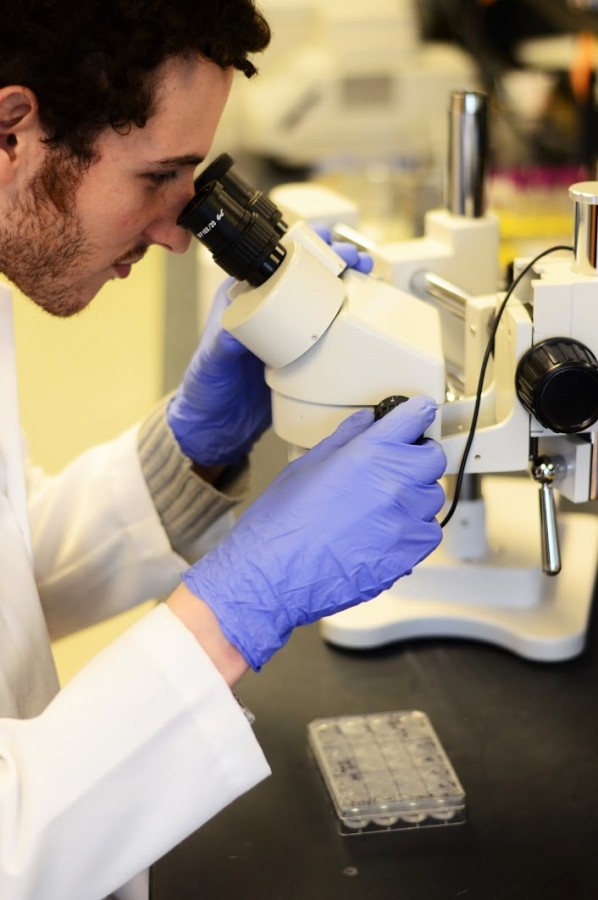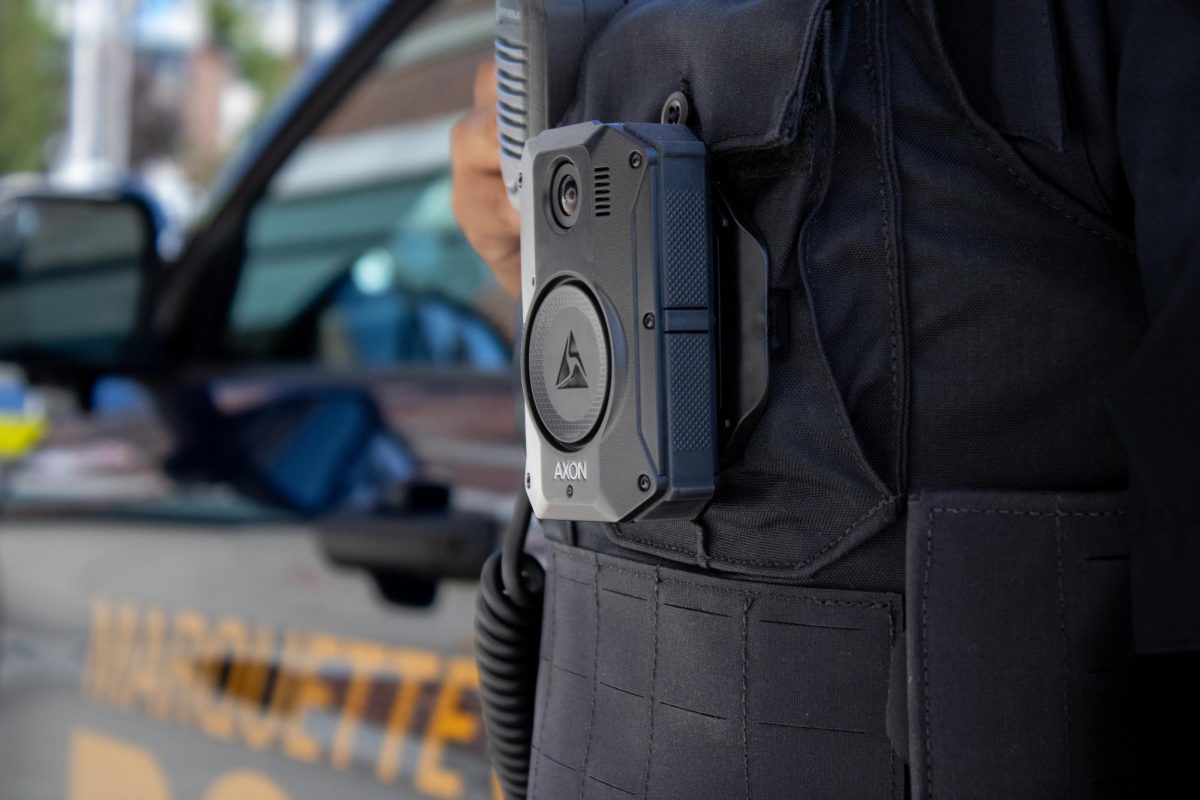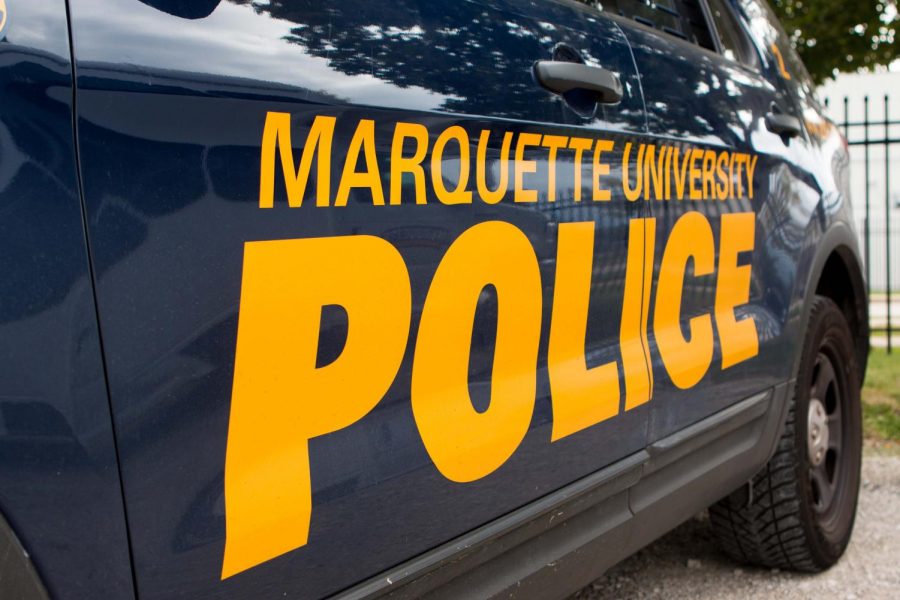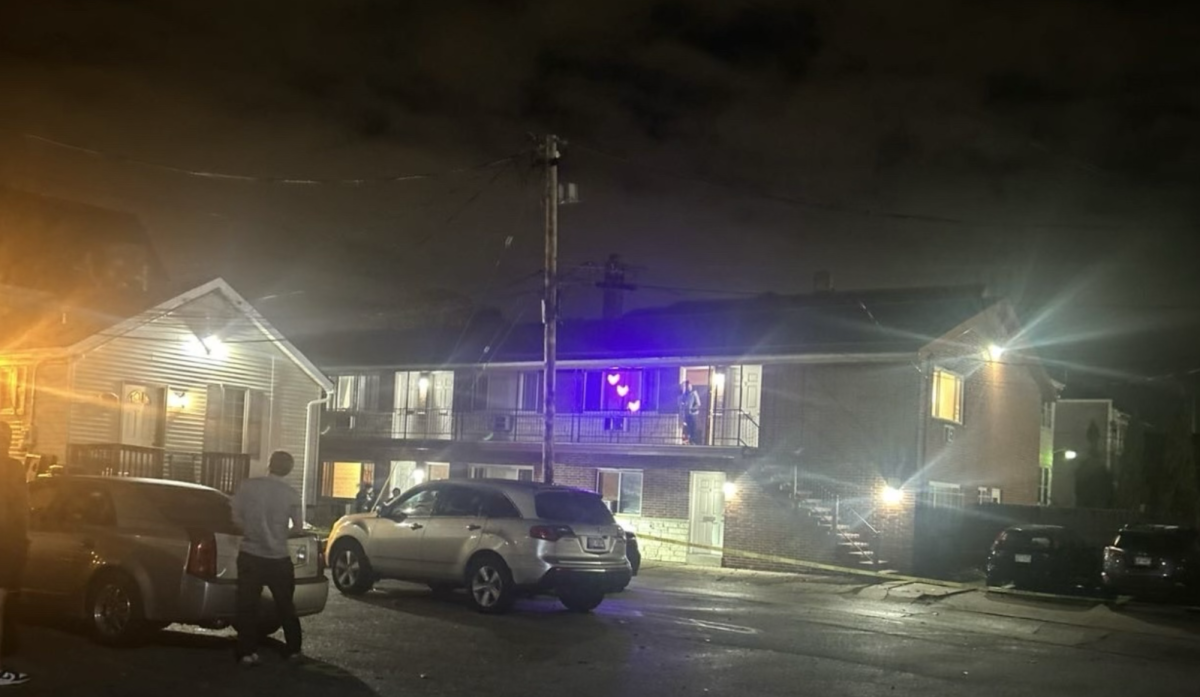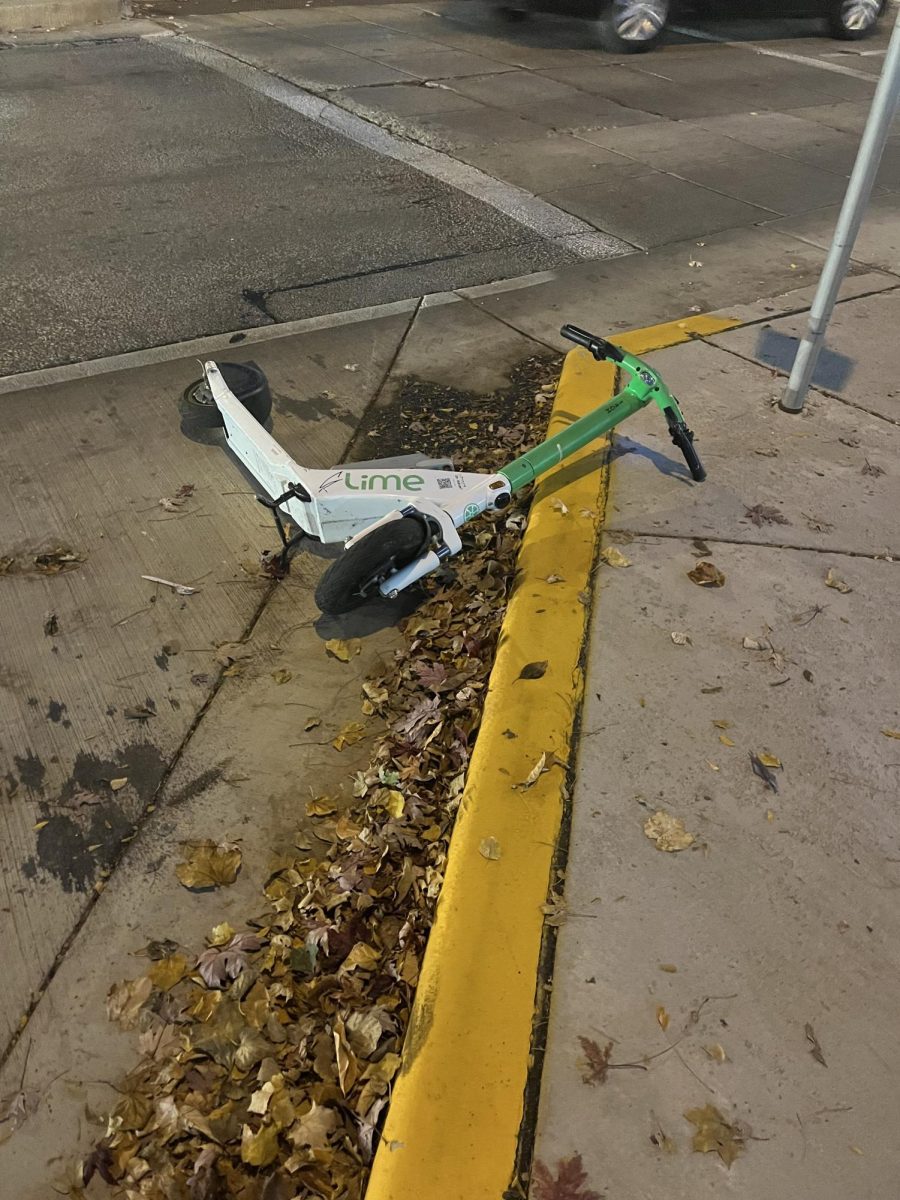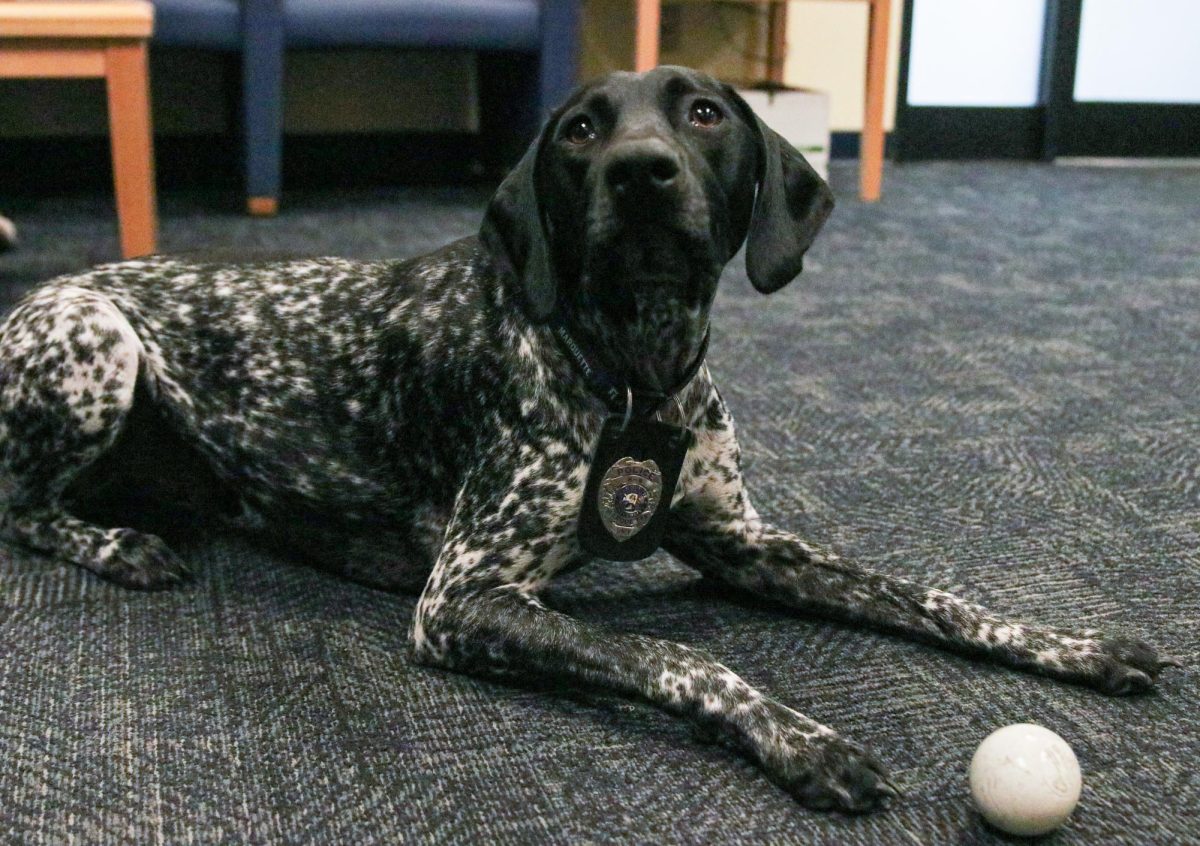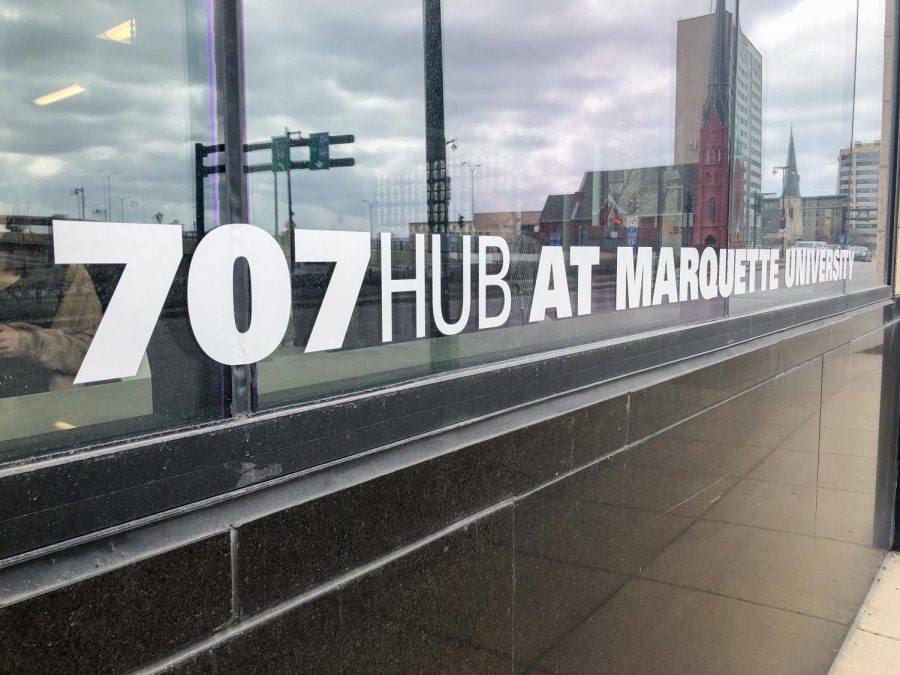While responding to an alleged sexual assault at a house on 19th and Kilbourn Streets Friday night, a Marquette University Police Department officer threatened to use his Taser against a non-compliant student at the house. Snapchat footage of the incident shows a plainclothes MUPD detective and a uniformed MUPD officer next to a staircase threatening to stun the student.
If viewers were to trust the Snapchat video, the Taser would appear to have been activated. Lights flash across the room and two distinct clicking sounds can be heard immediately after the initial threat is made.
But the Taser was never activated. A statement issued by the university the following day, along with confirmation from the student who was threatened, verified this. Still, rumors on a college campus are inevitable, and confusion over what exactly occurred Friday night persisted.
This confusion was wholly avoidable. Had the MUPD officer who deployed the Taser been wearing a body camera, he would have had precise and objective evidence corroborating MUPD’s statement.
MUPD’s lack of officer-worn body cameras is inconsistent with their mission of transparency, and considering the scrutiny applied to law enforcement agencies, particularly in instances where force is used, the absence of these cameras hurts the department’s relationship with the Marquette community.
Moreover, police departments need to be able to tell their side of a situation with their own video. The implementation of body cameras is for MUPD’s own good as much as it is for the community’s. Imagine if an officer needed to use their firearm, and that situation wasn’t caught on a third-party objective monitoring system. There would be no proper checks in place, and public opinion and speculation would not be on the side of the officer.
It is a significant commitment for police departments to incorporate body cameras, and it would be unfair to expect it without careful consideration. That being said, MUPD has been considering this option for quite some time.
The former public safety department transitioned to a commissioned police department in 2015. By the second MUPD Advisory Board meeting, held Dec. 8, 2015, the police chief suggested the implementation of both Tasers and officer-worn body cameras for MUPD officers.
Two months later, in February 2016, officers underwent Taser user certification sessions while MUPD officials worked to coordinate body camera implementation with Marquette’s Information Technology Services. Now, more than a year and a half since the initial proposal to incorporate body cameras into MUPD protocol, the police department is still camera-less.
It is understandable that such a dramatic shift in technological reliance would take time and diligent planning, but by the end of the semester, it will have been two years since the initial proposal and more than one year since the initial projected implementation date. MUPD needs to make a decision and deliver on this long-expired promise.
During the summer preceding the fall 2016 semester, MUPD tested two different body camera models manufactured by the company Axon. The rationale for testing the cameras over the summer was that by the time students returned in the fall, MUPD would have the data and practice necessary to fully implement the new technology.
But the cameras were never implemented. During the first MUPD Advisory Board meeting of the 2016-17 academic year, held Oct. 11, 2016, the board began discussing potential camera policies and protocols but made no tangible efforts toward actual implementation.
Two months later, during the Dec. 6, 2016 board meeting, the advisory board chair, Marquette University Law School professor Thomas Hammer, distributed a draft of MUPD’s body camera policy and the Milwaukee Police Department’s current policy.
The board discussed various storage options for the data collected by the cameras, and again, MUPD projected they would implement the cameras within the following few months, and again, the cameras never came.
There are glaring problems with the process by which the advisory board and MUPD have chosen to implement this program.
During the April 5, 2016, advisory board meeting, the body cameras weren’t even brought up. Yet, MUPD began testing the Axon cameras within two months of this meeting. Policy regarding the cameras wasn’t even discussed until the next board meeting, held in October of the following semester. It took another two months for a draft policy to be presented.
If the student body is supposed to put their faith in the MUPD advisory board, they are going to need a better example of its ability to organize and facilitate this initiative.
During the most recent advisory board meeting, held April 18, 2017, MUPD announced that Axon, the supplier of both the test cameras and the police department’s Tasers, would be giving law enforcement agencies body cameras free of charge.
On the surface, this looks like a great advantage for MUPD. But Axon’s offer is remarkably popular, and this popularity is hindering MUPD’s progress.
According to both MUPD Captain Jeff Kranz and Chief Paul Mascari, Axon is supplying the largest police departments with cameras first, and because of MUPD’s small size, it is difficult to say how soon MUPD should expect to see the cameras delivered.
If the issue were cost, the waiting game may be understandable. Securing both the equipment and the cloud-based storage necessary for body cameras is expensive, but according to the minutes from the Dec. 6, 2016, MUPD Advisory Board meeting, financing for the cameras and cloud storage had already been secured.
When MUPD first began researching the cameras in 2015, Kranz said they were hesitant to move too fast on this initiative.
“All of a sudden there are dealers for body cameras everywhere, and we want to make sure we get the best product,” Kranz said.
If MUPD had so many options at the beginning of its search, it should still have those options now. The best product is going to be the one that actually gets delivered. So far, Axon’s cameras are theoretical.
None of this speaks highly of MUPD’s ability to deliberate and deliver in a timely manner. It is the obligation of the community to hold authority accountable, but it is also the obligation of authority to serve with openness and transparency, neither of which are consistent with MUPD’s actions regarding this issue.

